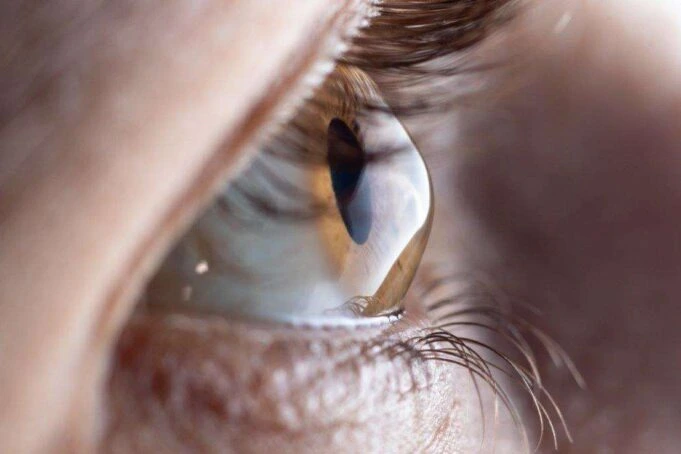Clear vision is something we all treasure in Australia, whether it’s admiring the city skyline of Brisbane or enjoying the stunning natural surroundings. However, for some people, a progressive eye condition called keratoconus can gradually rob them of sharp, clear sight. If you’ve noticed your vision becoming blurry or distorted, or if you’ve recently searched for terms like “keratoconus symptoms” or “keratoconus treatment Brisbane,” this comprehensive guide is designed to help you understand this condition and the advanced treatment options available right here in Brisbane.

What is Keratoconus? The “Cone-Shaped Cornea” Explained
Keratoconus is a relatively common but often misunderstood eye disorder. It affects the cornea—the transparent, dome-shaped surface at the front of the eye. Normally, the cornea is round and smooth, focusing light properly onto the retina to produce clear images. In people with keratoconus, the cornea gradually thins and bulges outward, taking on a cone-like shape. This abnormal shape disrupts the eye’s ability to focus light correctly, leading to distorted and blurry vision.
The exact causes of keratoconus are not fully known, but research suggests a mix of genetic factors, environmental triggers such as excessive eye rubbing (often linked to allergies), and other systemic health conditions may contribute. Typically, keratoconus begins to develop in the teenage years or early twenties and progresses slowly over 10 to 20 years before stabilizing.
Recognising Keratoconus Symptoms Early
Keratoconus symptoms often start subtly and worsen over time. Key signs include:
- Gradually blurred vision that can’t be corrected fully with glasses
- Distorted vision where straight lines appear wavy or bent
- Increased light sensitivity and discomfort from glare
- Seeing halos or ghost images around lights, especially at night
- Frequent changes in eyeglass or contact lens prescriptions
- Worsening nearsightedness (myopia) and astigmatism
If you experience any of these symptoms, it’s crucial to consult an eye specialist in Brisbane for a thorough examination. Early diagnosis through detailed eye testing and corneal topography (a mapping of the cornea’s shape) can enable timely and effective management, preserving your vision for years to come.
Keratoconus Treatment Brisbane: Advanced Care for Better Vision
While keratoconus currently has no cure, modern ophthalmology offers a variety of treatments that can slow its progression, improve vision, and enhance quality of life. Brisbane is home to some of the leading specialists and cutting-edge keratoconus treatments, including:
Corneal Collagen Cross-Linking (CXL)
Often the first line of defense against progressive keratoconus, corneal collagen cross-linking (CXL) is a minimally invasive procedure designed to strengthen the cornea. The treatment involves applying vitamin B2 (riboflavin) eye drops to the cornea, then exposing it to controlled ultraviolet (UV) light. This process promotes new bonds between collagen fibers, stiffening the cornea and preventing further bulging. CXL has been widely adopted in Brisbane and can effectively halt keratoconus progression, especially in its early to moderate stages.
Specialty Contact Lenses for Keratoconus
For many living with keratoconus, conventional glasses or soft contact lenses do not provide sufficient vision correction due to the irregular shape of the cornea. Instead, specialty contact lenses are essential for improving vision:
- Scleral lenses: Large lenses that rest on the sclera (the white of the eye) and vault over the cornea, offering comfort and stable, sharp vision—even in advanced keratoconus.
- Hybrid lenses: Combine a rigid center for clear optics with a soft skirt for comfort, ideal for intermediate cases.
Brisbane optometrists specializing in keratoconus can assess your unique needs and recommend the best lens option.
Topography-Guided Phototherapeutic Keratectomy (TG-PTK)
For patients with corneal surface irregularities or mild scarring, TG-PTK may be recommended, sometimes alongside or following CXL. This laser procedure uses corneal topography maps to precisely smooth the corneal surface, improving its shape and optical quality. While TG-PTK may not fully correct refractive errors, it can significantly improve vision quality and comfort with contact lenses.
Corneal Allogenic Intrastromal Ring Segments (CAIRS)
A newer, innovative treatment gaining attention is CAIRS. This procedure involves implanting donor corneal tissue segments into the stroma (middle corneal layer) to flatten the cone and reshape the cornea. CAIRS offers a biocompatible alternative to synthetic rings, potentially reducing complications and improving vision and contact lens fitting. Brisbane’s leading ophthalmologists are increasingly offering CAIRS as part of their advanced keratoconus care.
Corneal Transplantation: DALK and PK
In severe cases, or when other treatments fail, surgical options such as Deep Anterior Lamellar Keratoplasty (DALK) or Penetrating Keratoplasty (PK)—full-thickness corneal transplants—may be necessary. However, with modern early intervention options like CXL and advanced lenses, many patients avoid or delay transplantation.
Living with Keratoconus in Brisbane: Support and Monitoring
A keratoconus diagnosis can feel overwhelming, but you are not alone. Brisbane’s experienced specialists provide personalised care plans to manage your condition and maintain your vision. Regular monitoring is essential, as keratoconus can change over time.

If you’ve been searching “keratoconus Brisbane” or “keratoconus treatment Brisbane,” rest assured that local eye care professionals offer the latest diagnostics and therapies. Don’t let distorted or blurry vision limit your lifestyle—early intervention and ongoing care can help you enjoy clearer sight and a brighter future.

